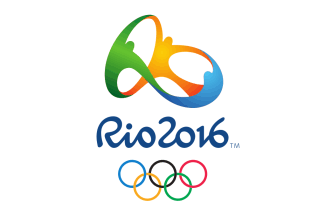
Olympic Achievement
By William Shields, Staff Writer
Once every four years, people from around the world come together for a few celebratory weeks to compete in the Summer Olympics. This year in Brazil, over 200 countries will take part in 28 different Olympic sports at the XXXI Olympiad. Behind this international sporting competition, there is an international legal cooperation attempting to make the Games run smoothly.
In 1894, Pierre de Coubertin created the International Olympic Committee (IOC), the governing body of the Olympic Games. Two years later, the first modern Olympics were held in Athens, Greece. Following the creation of the IOC, an Olympic Charter was drafted and ratified, laying out rules and guidelines to the international sporting event. This Charter dictates that while the IOC and its executive board is the governing body of the Olympic Games, the IOC’s final decisions can be challenged. This ability to challenge, however, took a few decades to put into action.
In 1983, the IOC created the Court of Arbitration for Sport (CAS) and placed it under the control of the International Council of Arbitration for Sport (ICAS). The ICAS is the parent organization to CAS and serves to protect the independence of CAS. The CAS simply serves to arbitrate disputes found in the vast array of sport disputes1.
So what happens when there’s an issue in a sport? Unsurprisingly, it’s similar to many other court systems in the world. The system follows the Code of Sports-Related Arbitration and depends on the issue at hand. For technical questions like disqualifications from events and rules of the sport, a sport or region specific board usually handles the dispute. For example, if a party has an issue with one of the rules of a diving competition, that party would go to the Fédération Internationale de Natation, the international board responsible for swimming and diving. The parties will attempt to resolve the issue there. If, however, one party wishes to appeal the Fédération’s decision, that party may do so to the first of the two branches of CAS: the Appeals Arbitration Division2. That branch merely serves to solve disputes raised from the governing bodies of the individual sports.
The second branch of the CAS, the Ordinary Arbitration Division, has the power to hear some cases without an appeal. These cases usually involve arbitration clauses within contracts. Almost all of the International Federations of individual sports have an arbitration clause to the CAS. These disputes go directly to the Ordinary Arbitration Division.
The judicial power of the CAS is recognized in US courts3. One well-publicized case that involved the CAS was the Lance Armstrong doping case4. In this case, the well-recognized cyclist Lance Armstrong sued the US Anti-Doping Agency (USADA), claiming the agency did not have the authority to charge him with doping violations. The USADA moved to dismiss. The District Court for the Western District of Texas granted the dismissal, stating that Armstrong had different routes to go about appellate review. The Court even specified that the CAS was one option open for Armstrong. The Union Cycliste Internationale (the International Federation for cycling) permitted Armstrong to arbitrate by CAS, and the federal court in the US acknowledged both the arbitration clause and, more importantly, that the CAS was as a valid arbitrating power for sports disputes.
The International Olympic Committee has set in place a system where most athletes around the world can come to arbitrate their disputes. In a short 30 years since it was founded, the CAS has become an independent source of arbitrating power with the ability to arbitrate over almost every sport. Thus, the Olympics can be protected from iniquity and imbalance.
- International Olympic Committee, Olympic Charter, September 2015, available at http://www.olympic.org/Documents/olympic_charter_en.pdf.
- International Olympic Committee, Code of Sports Arbitration, January 1, 2016, available at http://www.tas-cas.org/fileadmin/user_upload/Code_2016_final__en_.pdf.
- Chelsea Football Club Ltd. v. Mutu, 849 F.Supp.2d 1341 (S.D. Fla. 2012).
- Armstrong v. Tygart, 886 F.Supp.2d 572, (W.D. Tex. 2012).
